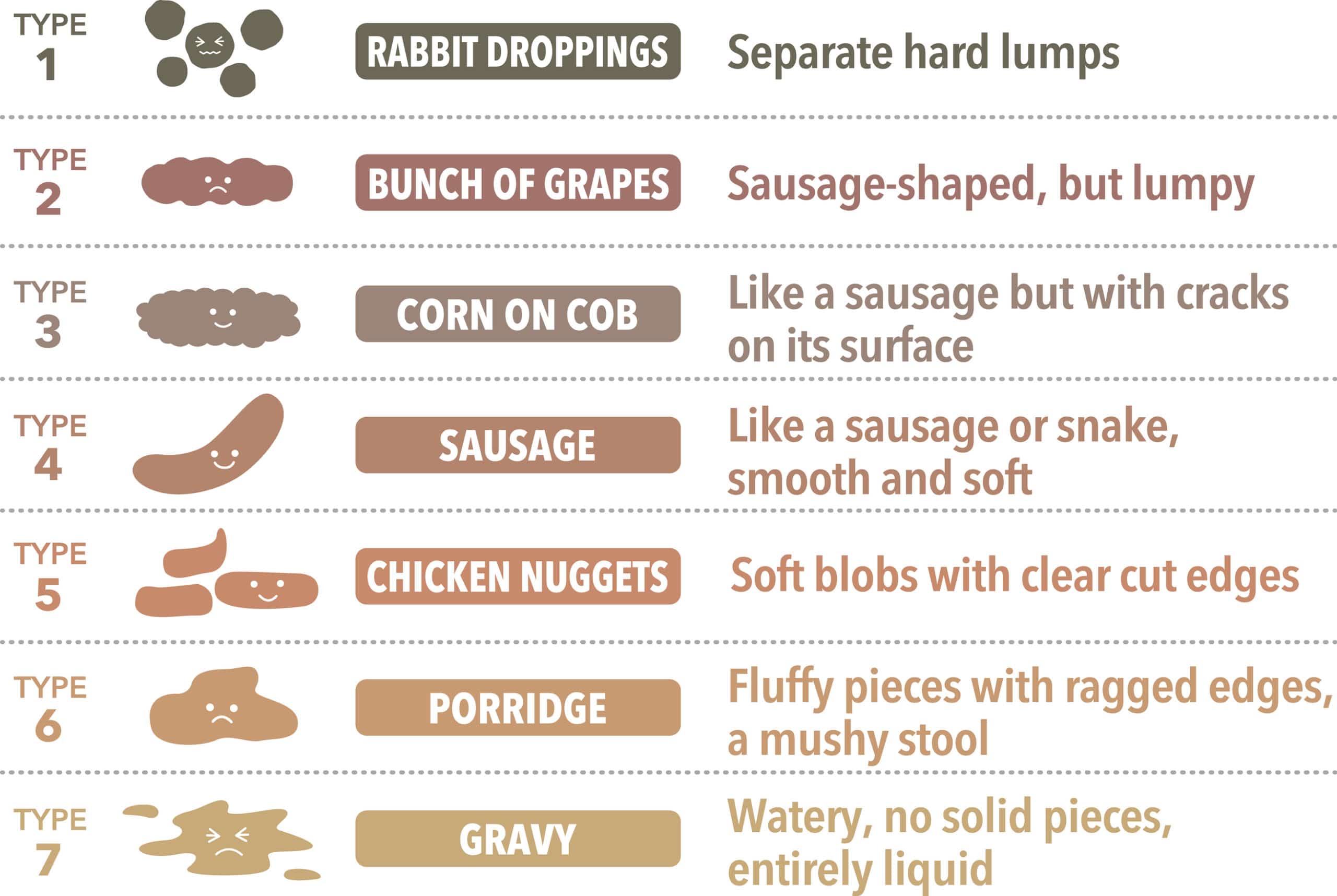What Causes Wet Farts Vs. Normal Farts? + 20 Ways to Ensure Normal Farts
Click Here For Transcript of "What Causes Wet Farts" Video
What causes “wet” farts (vs. normal farts)?
Can I tell you a secret? Sometimes, I’m not welcome. I know that people love me, but I’m not always invited. And the one party no one wants me at is the fart party. If you’ve ever expected a fart and got me you were probably not happy. I can take it, I’m tough! But more importantly I’d like to tell you how to uninvited me. It’s simple, watery flatulence could indicate a digestive disorder or underlying health condition. My favorite way to beautifully boost my gastrointestinal system happens every morning right after I brush my teeth. Click below to find out my secret. And if you’re having a fart party then let a girl know! I’d be happy to stay home. Too stinky anyway. Until then, LIKE for good poop, SHARE for great poop. See ya!
Gas is a normal part of digestion. You expel gas by burping or farting. But there are times when you may release a wet fart that has a “liquid” sound and/or includes liquid stool. What does this mean? Have you ever wondered why sometimes a fart feels different than others? Well, you’re not alone! It’s a common question with quite intriguing answers. Farts, while often the subject of humor, can actually tell us a lot about our health. Farts, or flatulence, are caused by gas in the intestinal tract and colon, which comes from two primary sources: the air we swallow and the breakdown of undigested food by bacteria in the gut. Typically, these gases are odorless. It’s only when small amounts of other gases, like hydrogen sulfide (produced when food breaks down), mix in that farts take on their notorious smell. Wet farts, distinct from the typical, airy ones, might feel different because a small amount of liquid often accompanies them. Liquid can be present if the body is trying to expel undigested foods that have been broken down in the colon or if there’s excess mucus resulting from an irritation in the intestines. Understanding the nuances of our body’s gas can be more than amusing—it can also be enlightening. Stay tuned for a deeper look into why these variations occur and discover practical tips for promoting a more comfortable, perhaps less embarrassing, digestive experience. Want to make sure your digestion is on track? Stick around as we uncover simple and effective ways to maintain a healthy gut, leading to normal, less problematic farts. Remember, maintaining a healthy gut can significantly improve your physical and mental well-being, leading to a happier you! Are you curious how you can transform your gut health with some easy tweaks in your lifestyle? Read on to learn the causes of and natural solutions for wet farts. Share this with friends and family who might be looking for the same answers as you; they’ll thank you later! Wet farts can be surprising and often uncomfortable. But wet farts are normal. The causes of watery flatulence may be influenced by various factors, ranging from dietary choices to health conditions. Understanding these causes can help address the underlying issues and make appropriate lifestyle changes. Consuming food that is high in fructose, artificial sweeteners, or lactose can lead to increased gas production and liquid content in the intestines, resulting in a wet fart (or two). Foods such as onions, beans, and dairy products can be problematic for those with sensitivities, leading to fermentation in the gut and resulting in occasional wet farts. This common disorder affects the large intestine and can cause a range of symptoms, including wet farts. IBS leads to bowel inconsistency and excessive mucus, so wet farts may occur and be more frequent. Gastrointestinal infections such as Giardiasis can introduce excess fluid into the gut. This not only disturbs the digestive process but also changes the consistency of farts. Pathogens can irritate the digestive tract, resulting in watery flatulence and other gastrointestinal distress like diarrhea. Conditions like celiac disease or Crohn’s disease impair the body’s ability to absorb nutrients properly. This can lead to the malabsorption of fats, which often causes intestinal gas and makes for watery stools. In other words, farts may be greasier or wetter than usual. Farts may occur due to some medications. Certain medications, including antibiotics and laxatives, can alter the gut flora or increase bowel movements. Some weight loss drugs may also impact gut health for certain individuals by altering digestive processes, potentially increasing gas or watery stools. If you notice these side effects, consult your healthcare provider to explore adjustments or alternative treatments that better suit your digestive health. These medications can lead to changes in gas production and the moisture content of farts, leading to watery stool. Stress can impact bodily functions, particularly the digestive system. High-stress levels can speed up digestion and cause incomplete absorption of nutrients, often causing stomach upset, which may lead to watery flatulence. Addressing the causes of wet farts is the first step towards achieving a more normal flatulence experience. After all, flatulence is a normal bodily function. Simple and natural adjustments to your daily habits can significantly improve the consistency and frequency of your farts. By understanding these triggers and how they affect your body, you can begin to implement dietary and lifestyle adjustments that not only minimize discomfort but also promote a healthier digestive system and prevent wet farts. Let’s explore some effective, natural ways to ensure your farts are less wet and more normal. While diet, physical activity, and mental health play significant roles in digestive well-being, other general lifestyle changes can positively impact your gut health and reduce issues like wet farts. These changes focus on practical adjustments that enhance overall digestive function without delving into specific diet or exercise routines. Here are four lifestyle modifications to consider for better digestive health: Quality sleep is crucial for the body’s overall health, including digestion. Ensuring you get enough rest each night helps regulate the body’s natural processes, including the digestive system. Aim for 7-9 hours of uninterrupted sleep. A consistent sleep schedule not only supports the circadian rhythm but also optimizes gut motility and the balance of gut bacteria, leading to improved digestion and reduced gastrointestinal disturbances. Drinking sufficient water is essential for digestion. Water aids in the breakdown of food and absorption of nutrients and helps maintain regular bowel movements. Aim to drink at least eight 8-ounce glasses of water daily. Proper hydration can help prevent the build-up of gas and ensure smoother digestion, reducing the likelihood of wet farts. Be mindful of your medications, as some can impact your digestive health. Discuss alternatives with your healthcare provider if you notice digestive disturbances after starting a new medication. Opt for medications that support gut health or have minimal gastrointestinal side effects whenever possible. This careful management can help maintain a healthy digestive system and reduce discomfort. Eating your meals and snacks consistently each day can significantly benefit your digestive system. An erratic eating schedule can disrupt your digestive process, leading to gas build-up and wet farts. Setting regular meal intervals helps the body process foods effectively and reduces stress on the digestive tract, promoting overall gut health. By implementing these lifestyle changes, you can support your digestive system to function more efficiently, leading to fewer digestive issues and a more comfortable daily experience. Focusing on dietary changes can significantly enhance digestive efficiency and reduce problems like wet farts. While maintaining a balanced diet is crucial, specific adjustments can be particularly beneficial for managing gas and improving gut function. Here are five dietary changes to consider that are directly linked to better digestion and overall gut health. Foods high in fructose can cause excessive gas and bloating. Fructose is a type of sugar that some people find difficult to digest. Limiting foods rich in fructose, such as certain fruits, honey, and processed foods containing high fructose corn syrup, can decrease the production of gas and reduce instances of wet farts. Artificial sweeteners like sorbitol and xylitol are often found in sugar-free gum and candies. These sweeteners are not fully digested in the gut, which can lead to fermentation by bacteria in the intestines, resulting in increased gas and moisture in farts. Avoiding these can help maintain a more regular digestive process. Probiotics are beneficial bacteria that can enhance gut health and digestion. Incorporating probiotic-rich foods like yogurt, kefir, and fermented vegetables can help balance the gut microbiome. A healthy microbiome can improve digestion and reduce gas production, which in turn minimizes wet farts. Lean proteins are easier on the digestive system compared to fatty cuts of meat. Opting for lean cuts of meat, poultry, fish, and plant-based proteins can help minimize gut strain during digestion. This can lead to fewer digestive disturbances and less gas production. Reducing dairy intake can improve digestive symptoms for individuals sensitive to lactose (lactose intolerant). Lactose intolerance can lead to increased gas production, bloating, and wet farts leading up to a bowel movement. Choosing lactose-free alternatives or reducing dairy consumption overall can help mitigate these symptoms. Certain individuals using weight loss drugs should pay special attention to their dietary choices, as these medications can sometimes amplify gastrointestinal symptoms when combined with trigger foods. For example, lactose or artificial sweeteners might worsen digestive discomfort, making it crucial to adjust your diet for optimal results. By making these dietary changes, you can directly influence the health of your digestive system, leading to reduced discomfort and fewer issues related to wet farts. Regular physical activity is a key component of overall health and supports digestive function. Specific types of exercise can help stimulate intestinal activity, reduce bloating, and prevent excessive gas buildup that leads to wet farts. Here are four effective exercise changes that can positively impact your digestive health. Walking, jogging, or cycling improves blood flow and helps the intestines work more efficiently. Regular aerobic exercise encourages food movement through the digestive tract more quickly, reducing the time it takes for it to ferment and produce gas. Aim for at least 30 minutes of moderate aerobic activity most days of the week. Certain yoga poses can specifically target the digestive system, enhancing motility and facilitating the release of trapped gas. Poses like Pawanmuktasana (Wind-Relieving Pose), Apanasana (Knees-to-Chest Pose), and Vajrasana (Diamond Pose) after meals can be particularly beneficial for stimulating digestion and preventing the buildup of gas. Strengthening the abdominal muscles can help improve digestion by physically supporting the organs involved in the digestive process. Exercises such as planks, abdominal crunches, and leg lifts help strengthen the core, leading to better intestinal function and a reduced incidence of bloating and gas. Establishing a consistent exercise routine helps maintain regular digestive function. Disruptions in physical activity patterns can lead to disruptions in bowel habits. Staying consistent with your exercise routine also helps your digestive system stay regular. By incorporating these physical activities into your routine, you can support the health of your digestive system, leading to fewer issues with gas and wet farts. Regular exercise not only keeps the body fit but also ensures that your digestive system operates more smoothly. Common symptoms of poor digestive health include frequent bloating, gas, diarrhea, constipation, and stomach pain. Persistent heartburn and an upset stomach after eating are also indicators. If these symptoms occur regularly, they may disrupt daily activities and overall well-being, suggesting that your digestive system might not function optimally. Yes, stress has a significant impact on digestive health. It can cause the esophagus to spasm and increase the acid in the stomach, leading to indigestion or heartburn. Stress also affects food movement through the digestive tract, which can lead to diarrhea or constipation. Managing stress through mindfulness, exercise, or therapy can help mitigate these effects. Adequate hydration is crucial for good digestion. Water helps break down food so that your body can absorb nutrients. It also softens the stool, which helps to prevent constipation. Drinking sufficient water daily is one of the simplest yet most effective ways to improve your digestive health. Yes, certain individuals using weight loss drugs may experience digestive issues, as these medications may alter the way their body processes food or interacts with gut bacteria. This can lead to symptoms like increased gas or changes in stool consistency. It’s essential to monitor your body’s response and discuss any persistent issues with your doctor to ensure your treatment plan supports both weight management and digestive health. Probiotics are beneficial for digestive health as they add to the population of good bacteria in your gut. These beneficial bacteria aid in digestion, help absorb nutrients, and fight off potential infections. Probiotics can be found in supplements and fermented foods like yogurt, kefir, and sauerkraut. Regular consumption can help maintain gut flora balance, which is particularly important after taking antibiotics. Fiber plays a crucial role in maintaining digestive health. It helps regulate bowel movements by adding bulk to the stool and making it easier to pass. This can help prevent constipation and promote regularity. Fiber also aids digestion by slowing the rate at which food is broken down, leading to a more gradual absorption of nutrients. Adults should consume between 25 and 35 grams of fiber daily from vegetables, fruits, legumes, and nuts. These FAQs offer a glimpse into the basic care and understanding needed to maintain a healthy digestive system. Regular attention to these areas can lead to improved digestion and a more comfortable daily life. We’ve explored various strategies to enhance digestive health and address concerns like wet farts, from dietary adjustments to specific physical activities. Implementing these tips can significantly improve your digestive function and overall well-being. If you found this information helpful, please consider sharing it with friends and family through social media or email. Spreading awareness can help others lead more comfortable and healthier lives. Remember, a small change in habits can make a big difference in health. Gas is a normal part of life, but it doesn’t have to ruin your life! You can help fix so many of your digestive and bathroom issues, such as watery stool and wet farts, and improve your overall health with this patented molecule that is backed by Ivy League Doctors. Click here to learn more about it and to place your order today.Causes of Wet Farts: Understanding the Uncomfortable
1. Dietary Choices
2. Irritable Bowel Syndrome (IBS)
3. Infections
4. Malabsorption Issues
5. Medications
6. Stress and Anxiety
Transitioning to Normal Farts
Lifestyle Adjustments for Healthier Digestion
1. Improve Sleep Hygiene
2. Stay Hydrated
3. Manage Medication Intake
4. Regulate Eating Schedule
Dietary Adjustments for Improved Digestive Health
1. Reduce High-Fructose Foods
2. Minimize Artificial Sweeteners
3. Incorporate Probiotic-Rich Foods
4. Choose Lean Protein
5. Limit Dairy Intake
Enhancing Digestive Health Through Physical Activity
1. Aerobic Exercises
2. Yoga Poses
3. Core Strengthening Exercises
4. Consistent Exercise Routine
FAQ: Digestive Health Insights
1. What are the common symptoms of poor digestive health?
2. Can stress affect digestive health?
3. How does hydration influence digestion?
4. Can weight loss drugs affect digestive health?
5. Are probiotics beneficial for digestive health?
6. What is the role of fiber in digestive health?
Conclusion: Share the Gift of Health
Take Viscera-3!
What Are 7 types of poop?
Types of poop one encounters is categorized by the Bristol Stool Chart. This chart is a generalized indicator of how or why different types of poops look and feel a certain way. The 7 types of poop are broken up into categories based on a 2,000-person study!

Does your poo look this good? If you have Bristol Type 3 or 4 – your poop is considered “normal”! Bristol Type 1 or 2, is where the poop is hard and difficult to pass, are indicative of constipation. Often, these types of stool can be painful to pass – but don’t worry – Doctor Poo has a recommended healthy-gut switch solution…just keep reading!
Should you ever worry about your poop?
Always consult your healthcare provider if you have any concerns about what your poop means. People are asked to call their health care providers if: They experience severe levels of abdominal pain or discomfort with diarrhea that does not go away when you poop or fart. Also, if diarrhea is accompanied by fever of 101 degrees Fahrenheit or higher, chills, vomiting, or fainting, call your physician immediately.
What is an unhealthy poop?
An unhealthy poop is when one poops too often (hence, your doctor asking you if you poop more than three times daily) or not pooping often enough (As such, less than three times a week) and also excessive straining when pooping. Poop that is colored red, black, green, yellow, or white. greasy, or fatty stools is unhealthy.
Help fix so many of your digestive and bathroom issues, such as gas and bloating and improve your overall health with this patented molecule that is backed by Harvard Doctor’s by clicking here!
Doctor Poo Provides More Valuable Answers for Those Hard to Ask Questions Below:












